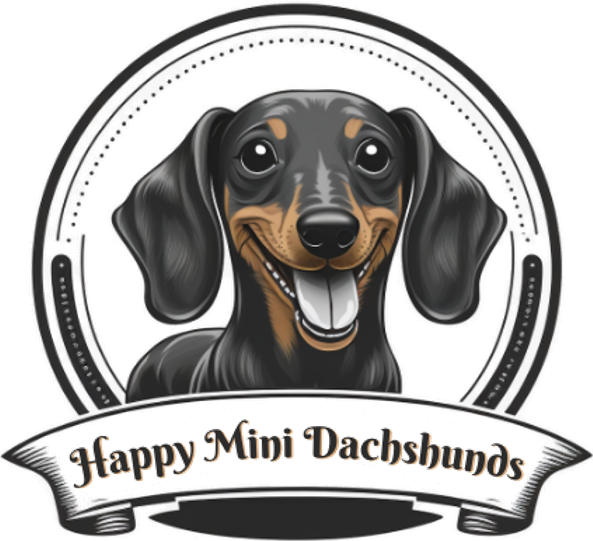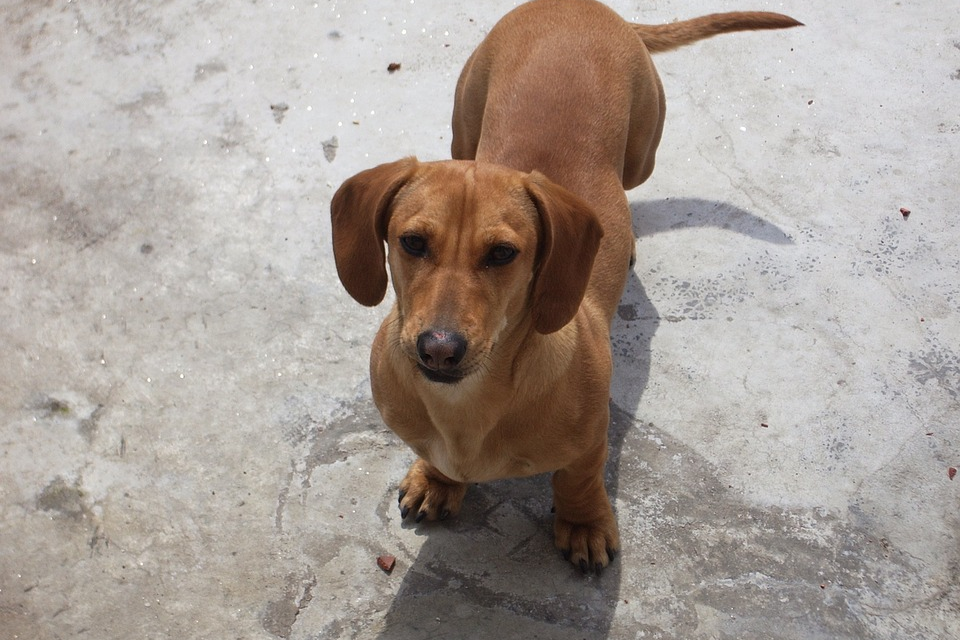If you’re considering getting a miniature dachshund as a pet, you’re probably wondering how small they actually are. While miniature dachshunds are smaller than standard dachshunds, they still come in a range of sizes. Knowing the exact size of your dog can be important for a number of reasons, including health concerns and choosing the right supplies.
In this blog post, we’ll take an in-depth look at how long a miniature dachshund is and what factors can affect their size. We’ll also explore the different types of miniature dachshunds and how their size can impact their health. Additionally, we’ll provide some tips on how to care for and maintain the health of your miniature dachshund.
But first, let’s take a brief look at the history of miniature dachshunds and why they’ve become such popular pets. According to the American Kennel Club, miniature dachshunds were first bred in Germany in the 19th century to hunt small game like rabbits and badgers. Today, they are beloved for their playful personalities and adorable looks.
So, if you’re considering adding a miniature dachshund to your family, read on to learn everything you need to know about their size and how to keep them healthy and happy.
Key Takeaways:
- Miniature dachshunds typically weigh between 8 to 11 pounds and stand 5 to 7 inches tall at the shoulder.
- There are three types of miniature dachshunds: smooth-haired, wire-haired, and long-haired.
- While miniature dachshunds are generally healthy, they are prone to certain health issues such as back problems, dental issues, and obesity. Proper care and maintenance are essential for their overall well-being.
How small is a miniature dachshund?
Miniature dachshunds are small dogs that are bred to be smaller than their standard counterparts. According to the American Kennel Club (AKC), the breed standard for miniature dachshunds requires them to weigh no more than 11 pounds at 12 months of age or older. In addition to weight, height is also a defining factor for miniature dachshunds.
Compared to standard dachshunds, which can weigh up to 32 pounds, miniature dachshunds are significantly smaller. However, even among miniature dachshunds, there can be variation in size. Factors that can affect the size of a miniature dachshund include genetics, nutrition, and exercise.
The AKC standard for miniature dachshunds specifies that they should have a height of 5-6 inches at the shoulder. However, it’s important to note that this is just a guideline and not a hard and fast rule. Some miniature dachshunds may be slightly taller or shorter than this range.
When it comes to weight, miniature dachshunds typically range between 8-11 pounds. However, there can be some variation within this range depending on factors like age, sex, and overall health. For example, female miniature dachshunds tend to weigh slightly less than males.
It’s worth noting that miniature dachshunds can come in different coat types, including smooth, long-haired, and wire-haired. While the different coat types do not affect the size of the dog, they can have an impact on grooming and maintenance.
Types of miniature dachshunds
There are three different coat types of miniature dachshunds: smooth, long-haired, and wire-haired. These different coat types can affect the appearance and maintenance of the dog.
Smooth coat miniature dachshunds
Smooth coat miniature dachshunds have a short, sleek coat that requires minimal grooming. They have a shiny, smooth coat that lies close to their body. Smooth coat miniature dachshunds are the most common type of miniature dachshund.
Long-haired miniature dachshunds
Long-haired miniature dachshunds have a soft, flowing coat that requires more grooming than the smooth coat variety. Their coat is longer and has a slight wave to it. Long-haired miniature dachshunds are less common than smooth coat miniature dachshunds.
Wire-haired miniature dachshunds
Wire-haired miniature dachshunds have a rough, thick coat that is the most labor-intensive to groom. Their coat has a wiry texture with a beard and bushy eyebrows. Wire-haired miniature dachshunds are the least common type of miniature dachshund.
Regardless of their coat type, all miniature dachshunds have a similar body shape with short legs and a long body. They are known for their distinct appearance and playful personalities.
It’s important to note that while the coat type does not affect the size of the dog, it can have an impact on their grooming needs. Smooth coat miniature dachshunds require the least amount of grooming, while wire-haired miniature dachshunds require the most.
In addition to their coat type, there can be some variation in size and weight within the breed. Some miniature dachshunds may be slightly taller or shorter than the AKC standard, and some may weigh slightly more or less than the typical range of 8-11 pounds.
Understanding the different types of miniature dachshunds and their varying sizes and coat types can help prospective owners choose the right dog for their lifestyle and preferences. Whether you prefer a low-maintenance smooth coat or a more unique wire-haired coat, there is a miniature dachshund for every dog lover.
Health concerns related to miniature dachshund size
While miniature dachshunds are generally healthy dogs, their small size can make them susceptible to certain health issues. Some of the health concerns related to the miniature dachshund size include:
- Intervertebral disc disease (IVDD): Miniature dachshunds are prone to this condition due to their long, low-slung bodies, which puts strain on their spine. IVDD occurs when the discs in the spine degenerate and can no longer cushion the vertebrae, leading to pain and even paralysis.
- Dental problems: Miniature dachshunds have small mouths and overcrowded teeth, which can make them more prone to dental issues such as periodontal disease and tooth decay.
- Obesity: Being small in size, miniature dachshunds only require a small amount of food to maintain a healthy weight. However, many owners tend to overfeed them, which can lead to obesity and related health problems such as joint pain and heart disease.
- Hypoglycemia: Miniature dachshunds have a high metabolism and require frequent feeding to maintain their blood sugar levels. If they don’t eat enough or go too long without food, they can experience low blood sugar or hypoglycemia, which can cause weakness, lethargy, and even seizures.
- Heatstroke: Due to their small size, miniature dachshunds can have difficulty regulating their body temperature and are prone to heatstroke in hot weather.
To keep your miniature dachshund healthy, it’s important to provide them with regular exercise, a balanced diet, and routine veterinary check-ups. As with any dog, early detection and treatment of health issues is key to keeping them happy and healthy.
Care and maintenance of miniature dachshunds
Miniature Dachshunds are a low-maintenance breed when it comes to grooming. However, they do require regular exercise, attention, and healthcare to keep them happy and healthy. Here are some important tips for caring for and maintaining your Miniature Dachshund:
Exercise
Miniature Dachshunds are active dogs that require daily exercise to keep them physically and mentally stimulated. Regular walks, playtime, and indoor games can help keep them fit and healthy.
Nutrition
Feeding your Miniature Dachshund a healthy and balanced diet is essential for their overall health and wellbeing. Choose high-quality dog food that is appropriate for their age, size, and activity level, and avoid overfeeding to prevent obesity.
Health care
Like all dogs, Miniature Dachshunds require regular visits to the vet for check-ups, vaccinations, and preventative care. They are prone to certain health issues, such as spinal problems, obesity, and dental issues, so it’s important to stay up-to-date with their healthcare needs.
Grooming
Miniature Dachshunds have short, smooth coats that require minimal grooming. However, they do shed, so regular brushing and bathing can help keep their coat healthy and clean.
Training and socialization
Miniature Dachshunds are intelligent dogs that respond well to positive reinforcement training methods. Early socialization can help prevent behavioral issues and ensure that they grow up to be well-adjusted and friendly dogs.
Safety
Due to their small size, Miniature Dachshunds are vulnerable to certain safety concerns, such as accidental injury and predation. It’s important to keep them on a leash or in a secure yard and to supervise them when they are outside.
Conclusion
Miniature dachshunds are small dogs with big personalities. They are loyal, loving, and intelligent pets that make wonderful companions for families and individuals alike. As we have seen, there are different types of miniature dachshunds, each with their unique physical characteristics and temperaments. However, it is essential to remember that these dogs are prone to health issues related to their size, including back problems and obesity. Thus, regular exercise, a healthy diet, and regular visits to the vet are crucial for their well-being.
When it comes to caring for miniature dachshunds, grooming and training are essential. These dogs have a thick coat that requires regular brushing and occasional bathing to keep it clean and healthy. Training should also start early, as these dogs can be stubborn and independent, making them challenging to train.
Overall, miniature dachshunds are a delightful addition to any family. By understanding their unique needs and taking proper care of them, you can ensure that you and your furry friend will enjoy a long and happy life together.

